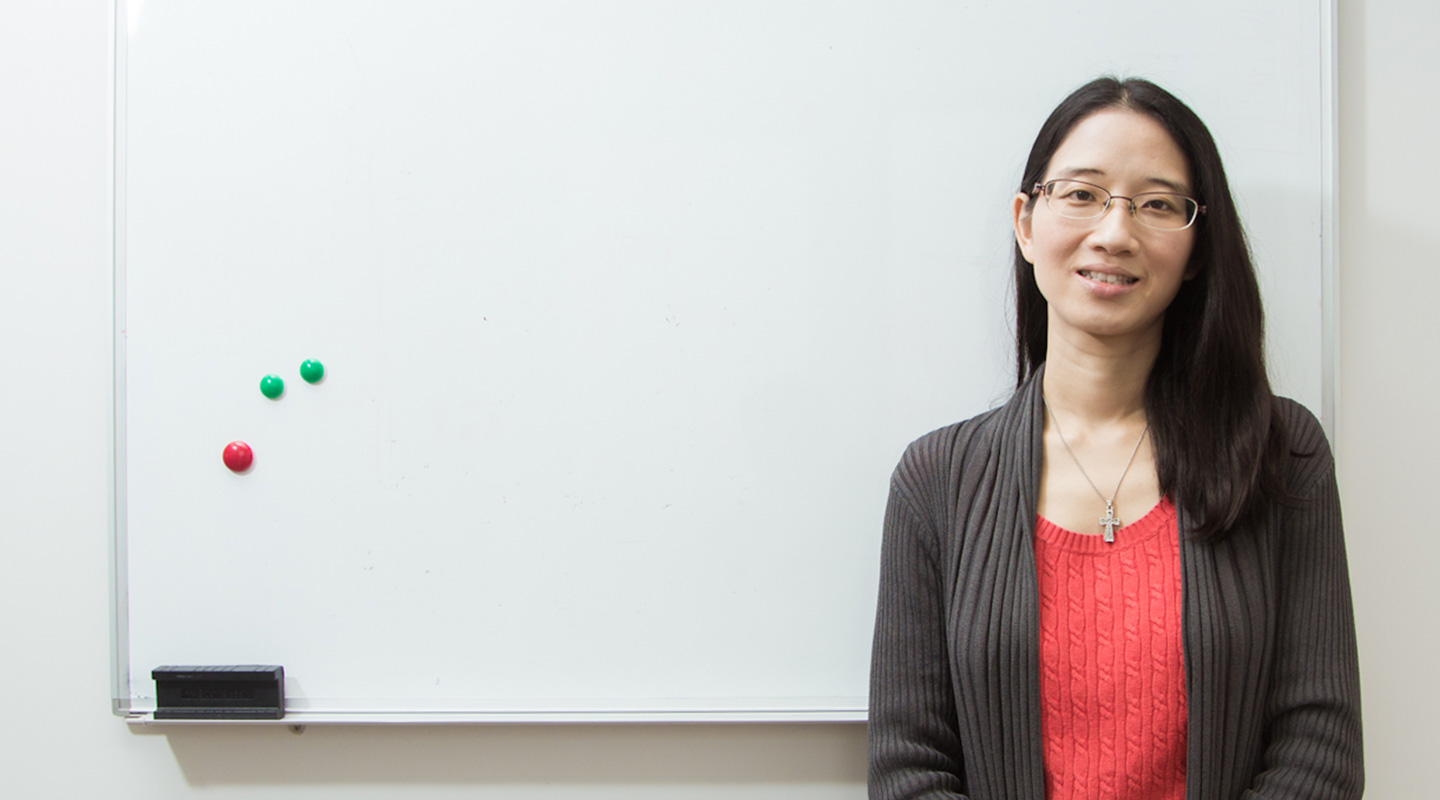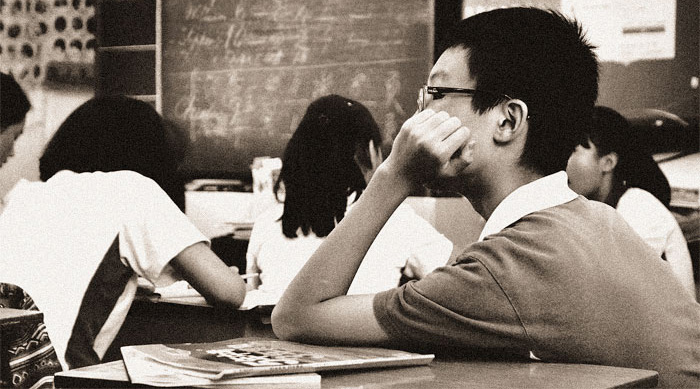Dear readers, With the launch of e-newsletter CUHK in Focus, CUHKUPDates has retired and this site will no longer be updated. To stay abreast of the University’s latest news, please go to https://focus.cuhk.edu.hk. Thank you.
The Dark Side of Overly Intrusive Parenting: Parents who are too involved in their children’s lives end up harming their offspring

Prof. Florrie Ng Fei-yin
Department of Educational Psychology
"Tiger moms" who derive their self worth from their children may be doing more damage than they realize, according to fresh research by an educational psychologist at CUHK. Parents whose children become their own "report card" often end up harming the offspring that they value so much.
The findings are counterintuitive in a world where most parents assume that greater involvement in the lives of their children equates to good parenting. But Prof. Florrie Ng Fei-yin's research has shown that the negative impact of over-involvement is true in China and Hong Kong, where she examined ethnic Chinese parents, and the US, where she studied parents of European and African American descent.
"There is a general assumption that the more invested parents are in their children, the better," Professor Ng notes. "This research shows that there could be a dark side to such devotion from parents, and that a healthy boundary may be necessary."
The main negative impact of becoming too involved in a child's achievements is that it is tough for the parents to let go of poor performance. They become particularly sensitive to any failure on behalf of the child.
Professor Ng, an assistant professor in the Department of Educational Psychology, compiled her research in two studies, one conducted in the laboratory in Hong Kong and the US and another by interviewing mothers in China and the US by phone for 12 consecutive days. In the lab research, she and her team would give the children, aged 8 or 9, a test. The team would manipulate the results to ensure some kids did well and others poorly, and then observe how the two groups of parents reacted to the results.
She and her fellow researchers would then leave the parents and children together for five minutes. They used a detailed coding system to interpret the parent-child interaction. "We observed immediately that the parents who were over-invested became mean to their kids right away," Professor Ng says. They frowned, refused to look at their children or made comments such as "That was really bad." One mother even went so far as to say her child had "failed", even though the researchers set no such threshold.
The phone interviews involved real-world schooling and performance of children aged 11 to 13. The research team first assessed the level of parental involvement, with over-involved parents more likely to say that they agreed with statements such as "When my daughter fails I feel bad about myself."
She found that all parents, regardless of their relationship with their children, react negatively on the day that their children perform poorly – whether doing badly in a test, being told their homework was not good, or being reprimanded by a teacher. That's much as you would expect. But only the mothers with a heightened sense of child-based worth continue to feel the same way the following day, telling the researchers by phone that they still felt bad about the underperformance.
These results suggest that overbearing parents have a much harder time getting over their children's failure. Though it is difficult to track the parents' mood statistically for more than two days because other positive or negative events at school come into play, Professor Ng feels the parents carry this "burden" for much longer.
"This has implications for children," Professor Ng says. The researchers also interviewed the children to see how they feel, asking them if they feel happy or depressed, if they feel smart compared to other children in their class, and the like. "The more that mothers show negative affect toward children, the less-competent children feel, and the more negative affect they experience in general."
There is no difference between how parents feel when their children do well, whether or not they get their sense of self-worth from their kids. But those who view their children as their "report card", a term used by one Hong Kong parent in a television interview, get more involved in the lives of their offspring and attempt to exert more control, to protect their own sense of self-value.

When their child is not responding as they desire, they may take revenge. This for instance can take the form of "love withdrawal". If a child is not studying enough, the parent may stop talking to their offspring. "They send them on a guilt trip," Professor Ng says. "This is very typical in Chinese families."
Whether they live in China or the US, five independent studies show that parents of Chinese descent are more authoritarian, employing a parenting style that is more intrusive, insists on structure and rules, and can even veer into hostility.
But the pattern of overreacting to a child's poor performance holds true regardless of ethnicity, according to Professor Ng's research. The extended negative feeling towards children who perform poorly is particularly damaging for children who frequently fail, Professor Ng's research shows. They become less and less confident in their own competence as a result of their interaction with their mothers.
"There's a lot of research showing that if parents exert their control over their children, they tend to be more depressed," Professor Ng says. In the case of reprisals, "children are less happy, more upset, and feel less confident when their mothers do that." Without a healthy boundary, the mothers end up hurting their children, the last thing they intended.
Many parents incorrectly view intensive control over their children as "good parenting". With families tending to have fewer children, and with schooling becoming more and more competitive, Professor Ng feels this misreading of the situation is worsening.
She encourages parents to ensure they have lives of their own outside of their children and to make sure they do not neglect their own emotional needs. "They should have friends, they should exercise," she says. "All that allows them to have a healthy sense of self."
By Alex Frew McMillan
This article was originally published on CUHK Homepage in Jun 2015.